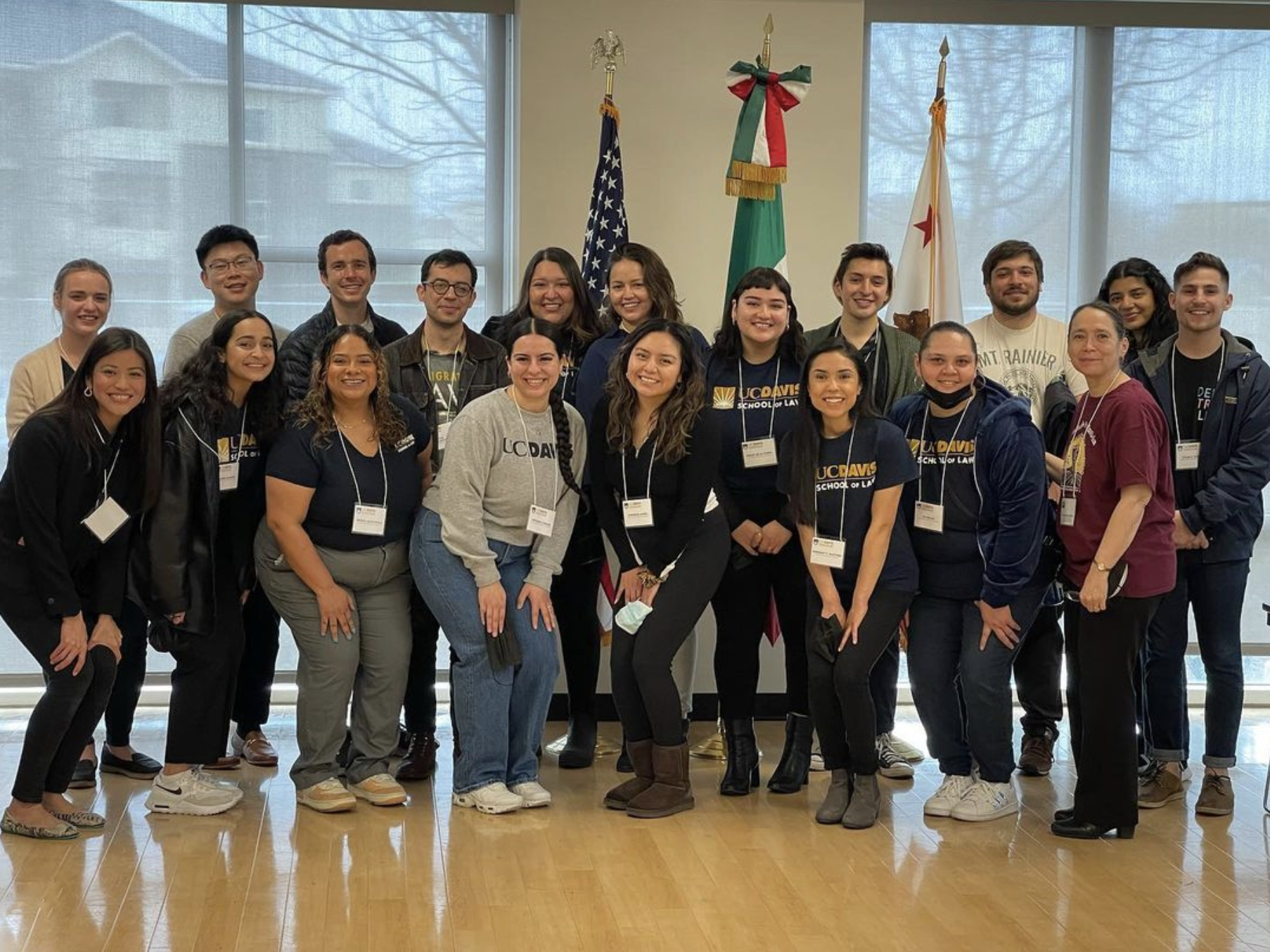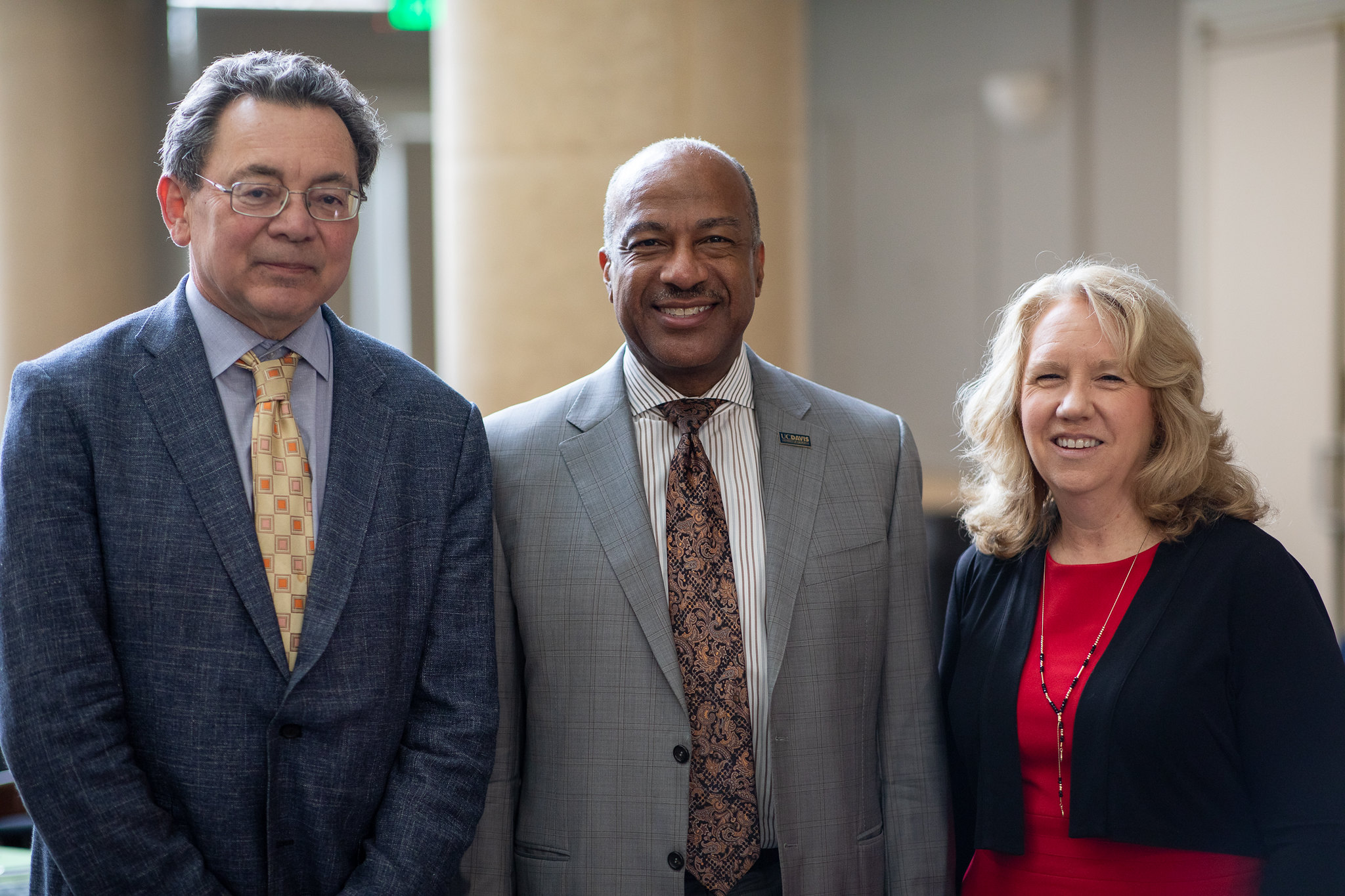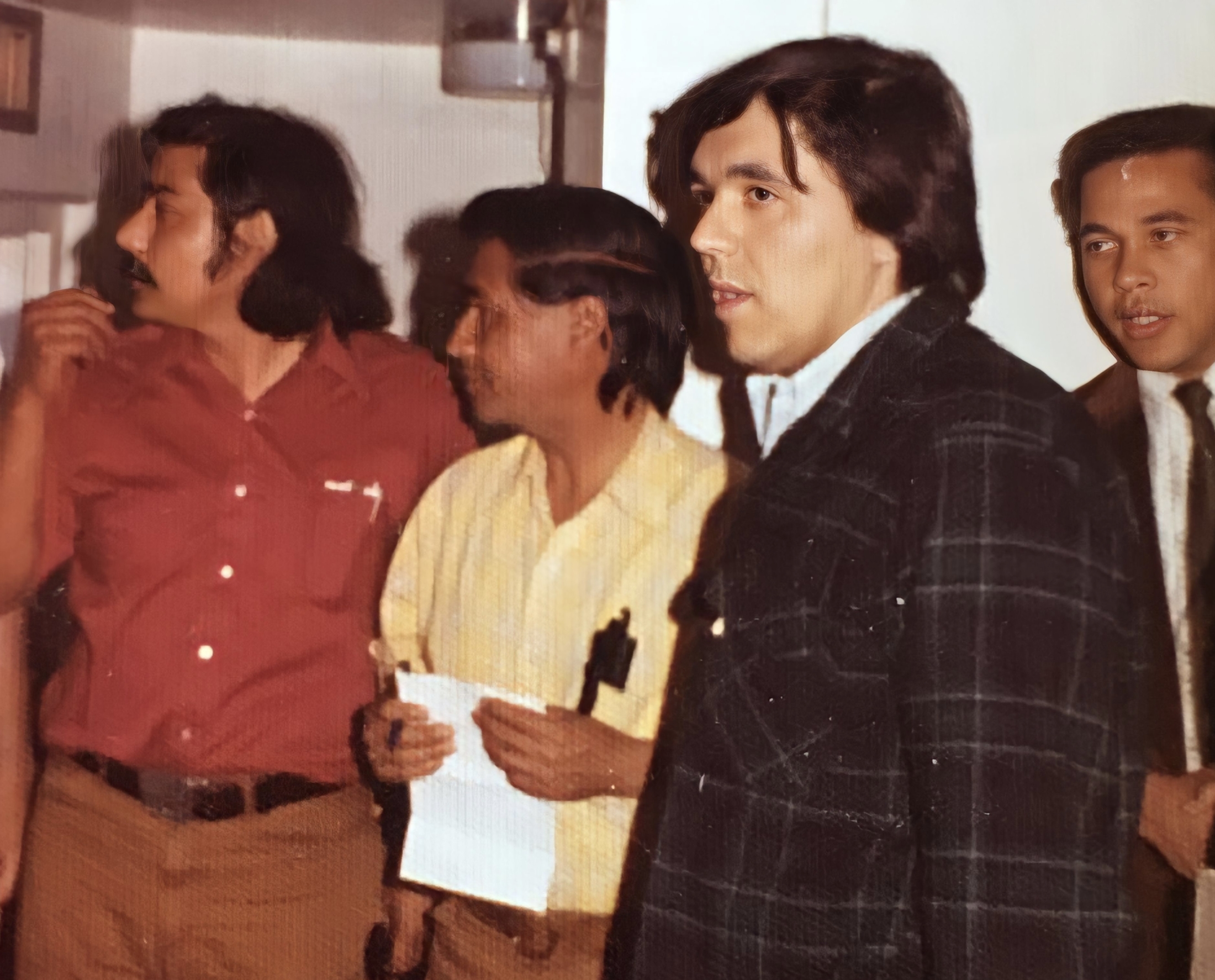Cesar Chavez Day Message
On March 31, we honor legendary farm labor organizer and civil rights activist Cesar Chavez, whose mission parallels UC Davis Law’s own.
Leader of the United Farm Workers union, Chavez died in 1993 after spending decades trying to better the lives of exploited, endangered agricultural workers. Chavez’s influence is all around us – in the Yolo County farm fields where Chavez improved working conditions; at the state Capitol, destination of the famous 1966 march from Delano and its smaller but passionate reprise last year, and in our law school’s programs and people.
We are proud the new UC Davis Labor and Community Center, directed by law Professor Leticia Saucedo and Asian American Studies Professor Emerita Robyn Rodriguez, will reside in King Hall. And that our Latinx Law Students Association (LaLSA) organized a naturalization workshop for its Cesar Chavez Day of Service earlier this month.

In many ways, the LaLSA is the conscience of our law school, much as Chavez was the conscience of California’s agricultural industry. I was so pleased that Chancellor Gary May, his wife, LeShelle, and Provost and Executive Vice Chancellor Mary Croughan could attend the recent LaLSA Patiño Banquet celebrating graduating 3Ls. The banquet honors the late Sacramento Judge and pathbreaker Lorenzo Patiño ’73.

King Hall alums joined the fight for farm worker rights. Professor Amagda Pérez ’91, the daughter of farm workers, assists immigrants and the rural poor as co-director of the Immigration Law Clinic and executive director of the California Rural Legal Assistance Foundation. Aidín Castillo ’11, executive director of the UC Immigrant Legal Services Center, delivered a stirring keynote speech at the Patiño Banquet about her path to her current role.

And former state Sen. Art Torres ’71 (second from right in photo, with Chavez) once served as national and state legislative director for the UFW.
As we reflect on Cesar Chavez’s legacy, I hope we consider how we, too, can effect real change in the lives of the most vulnerable among us.
